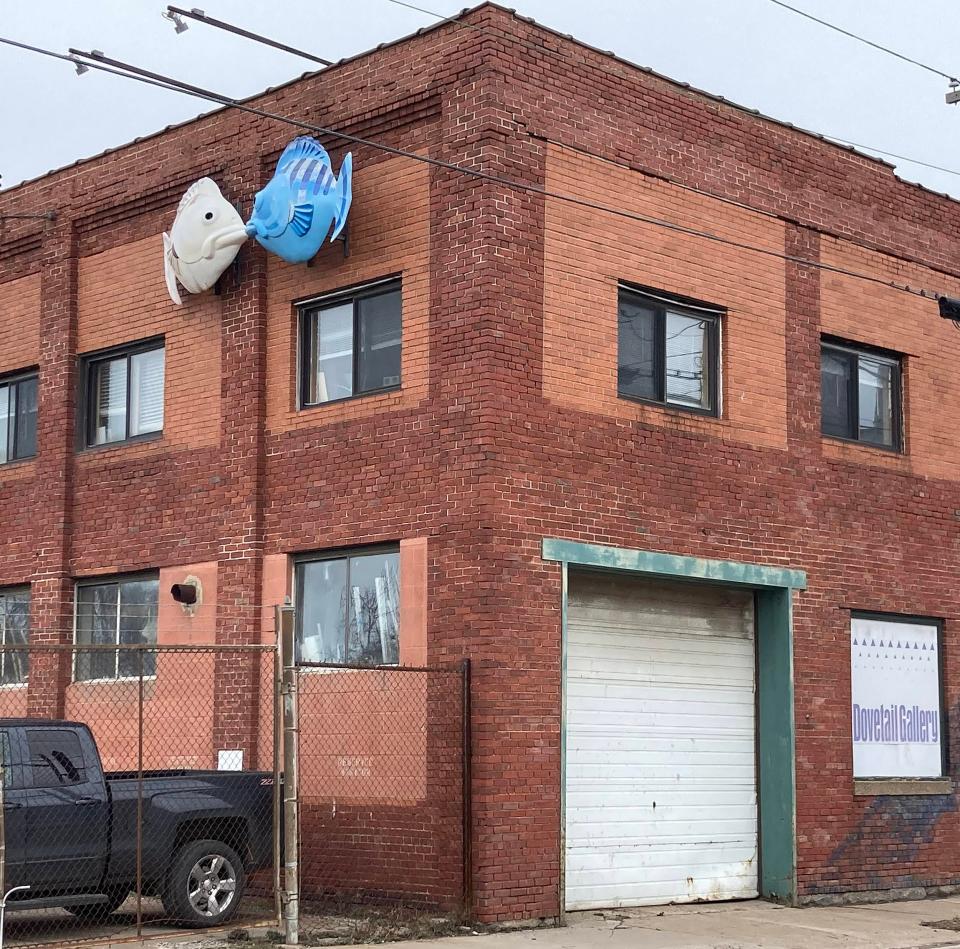After five-year battle with IRS, Erie business owner held liable for big tax bill
An Erie business owner has been ordered to pay nearly $430,000 in back taxes and penalties in a federal case notable for the length of time it has spent on the docket and the size of the tax liability.
The Department of Justice's Tax Division launched the case in December 2018 by filing suit in U.S. District Court in Erie against Gary Cacchione, owner of the Dovetail Gallery woodworking business near East 18th and Parade streets.

The government and Cacchione traded arguments in court for more than five years until a judge ruled against him on Tuesday. The judge said the IRS proved that Cacchione owes a total of $429,798 in two categories.
A liability of $180,054 for unpaid personal income taxes.
A liability of $249,744 for taxes and penalties for Cacchione's failure to withhold money from Dovetail Gallery employees' paychecks and remit it to the government. The money was for employees' Social Security, Medicare and federal taxes.
Cacchione's income tax liabilities cover tax years 2007, 2013 and 2016. The other taxes and penalties are for the first quarter of 2011, the last three quarters of 2016 and the first three quarters of 2017, according to the ruling.
Ruling includes a judgment against Cacchione
U.S. District Judge W. Scott Hardy, based in Pittsburgh, took over the case in 2020 from U.S. District Judge Susan Paradise Baxter, based in Erie.
In ruling against Cacchione, Hardy entered a judgment against him for $429,798. The amount is about $40,000 less than what the IRS originally sought.
If Cacchione fails to satisfy the judgment, the government could seize real estate and other personal assets and levy bank accounts.
Cacchione could try to stop the judgment by appealing to the 3rd U.S. Circuit Court of Appeals.
"We are reviewing the opinion and considering whether to appeal," said Neal Devlin, Cacchione's lead lawyer on the case.
Dovetail Gallery, incorporated in 1985, specializes in upscale, customized millwork for clients nationwide, including restaurants and casinos. It also makes furniture.
Ruling is related to Dovetail Gallery's latest bankruptcy
Hardy's judgment and 13-page ruling against Cacchione add to a history of Dovetail Gallery's financial woes, many of them tax-related.
Dovetail Gallery filed for Chapter 11 bankruptcy protection in 2003, with the IRS claiming that the business owed $282,00 in withholding taxes. That case ended in 2006 with a plan that the business would repay the taxes over time.
Also in 2006, the Justice Department's sued Cacchione over claims that he owed $161,000 in unpaid income taxes. That case was dismissed in 2007 after Cacchione argued he had agreed to pay the taxes as part of the Chapter 11 case.
The current tax case is intertwined with another bankruptcy case.
After the Justice Department sued Cacchione in December 2018, Dovetail Gallery filed for Chapter 11 bankruptcy protection in February 2019, citing lack of payment from a customer for a "significant" amount of work. The filing listed the overdue withholding taxes as liabilities.
That bankruptcy case was closed in 2020 with the approval of Dovetail Gallery's plan to pay the IRS and other creditors over time.
Cacchione cited CARES Act, bankruptcy plan for relief
In trying to get his income tax liabilities erased, Cacchione and his lawyers cited a tax provision in the Coronavirus Aid, Relief and Economic Security Act, passed in March 2020 and known as the CARES Act.
The provision allows a business to carry back a net operating loss for five preceding tax years. Cacchione argued he could take Dovetail Gallery's 2018 net operating loss of $202,840 and carry it back five years and eliminate his personal income tax liabilities, according to Hardy's ruling.
Hardy rejected Cacchione's argument. He said Cacchione failed to prove that Dovetail Gallery was eligible to carry back the 2018 net operating loss under the rules for what are known as S corporations like it.
Cacchione did not dispute that he was liable for the back taxes and penalties related to the withholding taxes.
Once deducted from employees' paychecks, that money is held in trust for the government. Employees whose withholding taxes are not remitted are not penalized.
However, as Hardy noted in his ruling, Section 6672 of the IRS Code authorizes the government to penalize "anyone who is required to collect, administer and pay over the tax and willfully fails to do so."
Cacchione contended that Hardy should stay the judgment over the withholding taxes to allow Dovetail Gallery's most recent Chapter 11 reorganization plan to proceed. The plan includes a schedule for the business to pay the withholding taxes and penalties to the IRS.
Hardy disagreed.
"Under Section 6672," he said in his ruling, "Cacchione is personally responsible for trust fund recovery penalties regardless of how such penalties are addressed in Dovetail's reorganization."
How much Cacchione owes in withholding taxes stands to be offset by how much Dovetail Gallery has repaid in the Chapter 11 plan, according to court records.
But to collect the withholding taxes, according to Hardy's ruling, the government could still seek the sale of Cacchione's personal assets.
Contact Ed Palattella at epalattella@timesnews.com. Follow him on X @ETNpalattella.
This article originally appeared on Erie Times-News: Erie businessman ordered to pay big tax bill after long fight with IRS

